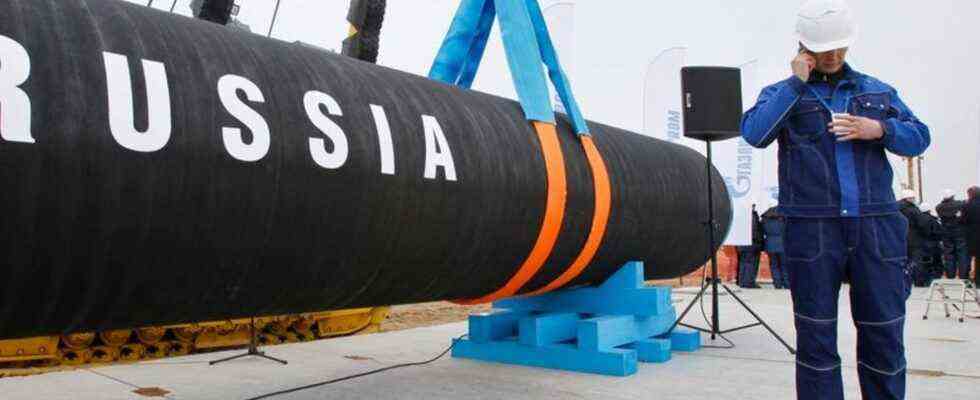Ukraine crisis
Economists: Growing uncertainty Poison for the upswing
Economists point to a “very high dependency” of the German economy on Russian gas and other raw materials. Photo: Dmitry Lovetsky/AP/dpa
© dpa-infocom GmbH
Rising energy prices and growing uncertainty: The conflict between Russia and Ukraine is also becoming a stress test for the German economy. The DIW nevertheless expects a “summer high”.
According to economists, the conflict between Russia and Ukraine could put the brakes on the upturn in the German economy.
“The Ukraine crisis is hanging over the German economy like the sword of Damocles,” said Commerzbank chief economist Jörg Krämer of the German Press Agency in Frankfurt. “The German exports to Russia are not the problem, which only account for two percent of all German exports. Instead, an escalation of the Ukraine crisis is causing great uncertainty, which is poison for the economy.”
Since Russia is a major gas supplier for Germany and Europe, Krämer sees “a certain risk of an energy crisis that would at least interrupt the upswing,” at least in the medium term.
ING Germany chief economist Carsten Brzeski also points to a “very high dependence” of the German economy on Russian gas and other raw materials: “The possible consequences of a further escalation can already be seen: an increase in gas prices, higher inflation and increasing uncertainty, the could in turn be expressed in less consumption and weaker investments in Germany.»
So far, economists have been assuming that the German economy will pick up again in the spring after a weak winter as a result of the Omicron wave. “The current tensions and a possible escalation may not be the big game changer, but they increase the current risk factors for the German economy: inflation and uncertainty,” says Brzeski. “The expected spring upswing would get big dents.”
The German Institute for Economic Research (DIW/Berlin) expects a “summer high” for the German economy despite the new burdens caused by the Russia-Ukraine conflict. The corona pandemic still has the German economy under control, but “the economic situation will probably improve significantly towards early summer,” predicted the DIW. “In Central and Eastern Europe, the industry has well-filled order books. With the gradual resolution of the delivery problem, production should therefore pick up speed significantly from early summer.”
For 2022 as a whole, the DIW predicts economic growth of 3.0 percent for Germany. That would be slightly more than last year, when gross domestic product (GDP) in Europe’s largest economy grew by 2.8 percent.
Dekabank chief economist Ulrich Kater considers a further increase in the price of energy commodities to be manageable from an economic point of view. “It could become more difficult if sanctions and counter-sanctions build up,” says Kater. “Physical supply cuts can quickly stop production lines in Europe and elsewhere and are therefore more problematic for the economy than rising prices.”
According to preliminary data, economic output in Germany fell by 0.7 percent in the final quarter of 2021 compared to the previous quarter. The Federal Statistical Office intends to publish detailed figures on gross domestic product for the fourth quarter this Friday (February 25).

